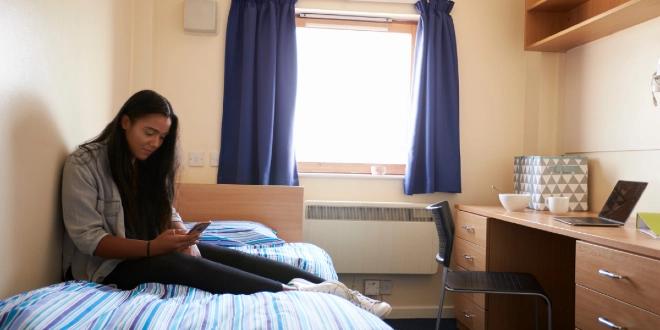Gardaí have issued a strong warning to students searching for housing as the new academic year approaches, highlighting a surge in accommodation-related fraud. With thousands of first-year students entering college and others returning for the term, authorities expect a sharp rise in scams during the coming weeks.
A Growing Problem
According to Garda figures, cases of accommodation fraud increased by 22% in the first six months of this year alone. Alarmingly, around one-third of these crimes typically occur in August and September, when demand for student housing peaks.
Younger renters are the most at risk: 34% of victims are under 25 years old, while two-thirds are under the age of 33. In many cases, victims lose significant sums of money in deposits or advance payments before realising the rental was a scam.
Between January and June this year, Gardaí recorded 160 such cases, with losses amounting to €385,000. By comparison, €617,000 was lost across the entirety of 2024.
How the Scams Work
Rental fraud often follows a similar pattern. Scammers typically advertise fake or inaccessible properties, asking for deposits before a viewing can take place. In some cases, victims are given keys that do not work, only to discover the property is already occupied or does not exist. By then, the so-called landlord has vanished with their money.
Red flags highlighted by the Garda National Economic Crime Bureau include:
- Listings advertised only on social media platforms.
- Landlords communicating solely via messaging apps such as WhatsApp or Messenger.
- Posts with poor spelling or vague details.
- Pressure tactics such as “one-time offers” or urgent requests for upfront payments.
- Landlords unwilling to meet in person or show the property.
- Requests for untraceable payments, such as cash or Revolut transfers.
Authorities stress that if an offer seems too good to be true, it likely is.
Advice for Students and Renters
Gardaí recommend several precautions for those searching for housing:
- Use established letting agencies or official college accommodation portals.
- Avoid cloned websites and unverified social media listings.
- Never pay in cash or via non-refundable transfers; instead, use secure and traceable payment methods.
- Request a written contract outlining rent, deposit, and tenancy terms.
- Where possible, inspect the property in person and verify the legitimacy of the landlord or agent.
International Students at Greater Risk
Brian Hearne, Policy and Communications Manager with the Irish Council for International Students, said that international students are especially vulnerable. Many arrive with limited English and little understanding of the Irish rental market, making them easy targets.
Speaking on RTÉ’s Morning Ireland, Hearne recalled the case of a Brazilian couple who lost several thousand euro in a scam. After viewing a property and being given keys, they returned to move in—only to find several other couples waiting to do the same. All had been duped by the same fraudster.
“Very importantly, people need to trust their instincts,” Hearne said. “There’s no such thing as cheap accommodation—if something seems too good to be true, then it probably is.”
What This Means
With rising demand and limited supply, student accommodation scams are likely to increase during the start of the academic year. Gardaí and student advocacy groups are urging renters to remain vigilant, trust their judgment, and prioritise safety over speed when securing housing.
By following official channels and avoiding suspicious offers, students can better protect themselves from becoming the next victims of Ireland’s growing rental fraud crisis.
 The Daily Star Ireland
The Daily Star Ireland



